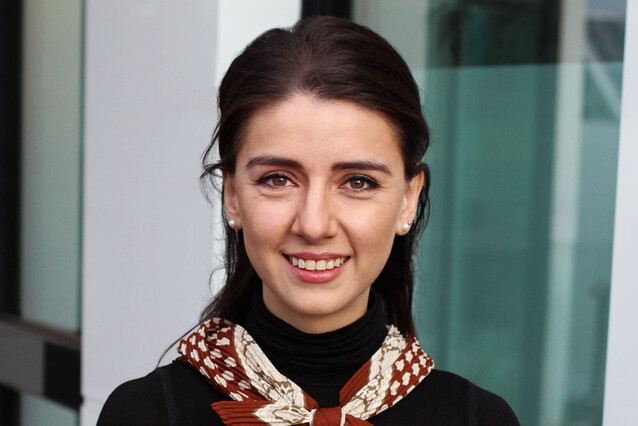Of inclusive science and exceptional mentoring: science communication award for Victoria Deneke
In 2020, the Society for Developmental Biology launched their Trainee Science Communication Award to recognise the outreach and mentoring efforts of its junior members. Victoria Deneke, postdoc in the lab of Andrea Pauli, now wins this international award for her many outreach initiatives and stellar mentoring of undergraduate students.
Academic research is a demanding career, and the people who choose it wear many hats. They must be scientists, statisticians, project managers, writers, editors, oral presenters, teachers, and mentors, to mention but a few. From an outsider’s perspective, however, the skill that shines through is the ability to communicate science out of the laboratory.
To acknowledge this important aspect of a scientific career, the Society for Developmental Biology - a professional association for basic scientists studying developmental biology around the world - established the Trainee Science Communication Award, which recognises the exceptional outreach and mentoring efforts of a student or postdoc member of the society. Victoria Deneke, postdoc in the Pauli Lab, wins the award this year.
Victoria’s latest supervisors, Andrea Pauli at the IMP and her PhD supervisor Stefano Di Talia at Duke University in the United States, highlight her ability to strive for excellence in her own scientific endeavours and to be fully committed to making science more inclusive of underprivileged aspiring scientists.
“Victoria is one of the bright stars to keep an eye on,” says Andrea Pauli. “I could not be prouder of her many accomplishments, both as a gifted researcher, and as a brilliant mentor to younger students.”
During her short scientific career, Victoria has received several prestigious awards and fellowships that underline her scientific skills, including the Harold Weintraub Graduate Student Award in 2020, an HFSP Program Postdoctoral Fellowship, and an HHMI International Student Fellowship. For the IMP’s Birnstiel Award, she was on the “honourable mentions” list in 2019. The Society for Developmental Biology’s award, however, stresses her very active role in mentoring students and promoting inclusivity in science.
In 2021, Victoria established the Austria-El Salvador Research Fellowship at the IMP. This internship program aimed to select a talented undergraduate student from the University of El Salvador, who would then conduct hands-on research at the IMP under her mentorship. This initiative stems from Victoria’s strong ties to her home country, and from her drive to lower barriers that prevent students from low- to middle-income countries to pursue a scientific career. The first edition of the program was a success.
“Students in El Salvador have few opportunities to run a research project – I learned a lot from my experience at the IMP,” says Eduardo Martínez, the first participant in the program. “I will be forever thankful to Victoria for being a fantastic mentor: she was kind and patient, and encouraged me to network with other researchers at the Vienna BioCenter.”
Victoria’s determination to give a Salvadoran student a chance to experience basic research at the IMP has inspired Eduardo to share his experience with his peers and has motivated other Latin American researchers in Austria to run similar programs.
Victoria’s mentoring skills have benefited other students in her three postdoctoral years at the IMP. Anna Kogan and Mirjam Binner, former student interns in the Pauli Lab, have recently published their own project under her close supervision.
While outstanding mentoring sits at the heart of Victoria’s eligibility for this award, her many activities in science outreach and communication have rounded her nomination. During her doctoral studies, Victoria has organised and run several outreach initiatives, including do-it-yourself microscopy workshops in El Salvador. Inspired by the outreach work of Bob Goldstein, professor at the University of North Carolina at Chapel Hill, she gathered more than 40 Salvadoran teachers and taught them to build and use simple smartphone-based microscopes in a school setting.
“In my opinion, the best way to advance science is to access the global pool of talent, and that includes excellent students from low- and middle-income countries,” Victoria says. “These experiences inspire me to continue my outreach and mentoring efforts, as I think they will benefit science in the long run. I am glad that the Society for Developmental Biology shares my vision.”
“Victoria is an incredibly generous person, a visionary, and a real role model for the next generation of young scientists. She excels in the skills that make a fantastic scientific leader,” says Andrea Pauli.
Further reading
